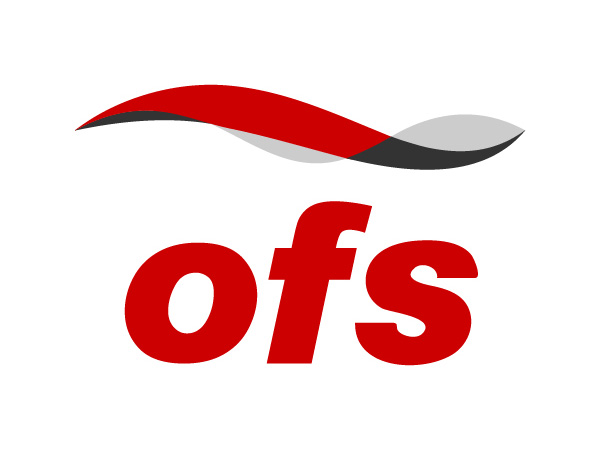Microstructure Optical Fibers (MOFs) are a new class of optical fibers having internal structure and light-guiding properties that are significantly different than conventional optical fibers.
OFS Laboratories (OFS Labs) is a world-class Center of Excellence with core competency in the areas of optical fiber design, fabrication, and optical device physics. Microstructure Fibers have been an area of research at OFS Labs since 1996. Over the years, OFS has fabricated a wide range of microstructure fibers, explored their manufacture by different methods, and created novel devices that demonstrate the potential of this new technology that is still in its infancy.
Learn more about this technology and OFS’s capabilities in this area by downloading one of our white papers on the subject of microstructure optical fibers.
Index of Microstructure Fiber-Related White Papers Recently Published by OFS Scientists
The addresses below take you directly to the individual white papers abstracted. A more complete listing of papers and other work being done by the Labs can be found in the Technical Library.
 Solgel Derived Microstructured Fibers: Abstract: We discuss a sol-gel casting technique for fabricating microstructured optical fiber. Both the advantages and challenges associated with this fabrication method are outlined.
Solgel Derived Microstructured Fibers: Abstract: We discuss a sol-gel casting technique for fabricating microstructured optical fiber. Both the advantages and challenges associated with this fabrication method are outlined.
 Low-Loss High-Strength Microstructured Fiber Fusion Splices Using GRIN Fiber Lenses Abstract: Gradient-index fiber lenses are used to fabricate high-strength (>100 kpsi) fusion splices between microstructured optical fibers. High coupling efficiencies are attainable (<0.6 dB loss), providing the mode field diameter is at least about 3.5 µm.
Low-Loss High-Strength Microstructured Fiber Fusion Splices Using GRIN Fiber Lenses Abstract: Gradient-index fiber lenses are used to fabricate high-strength (>100 kpsi) fusion splices between microstructured optical fibers. High coupling efficiencies are attainable (<0.6 dB loss), providing the mode field diameter is at least about 3.5 µm.
 Electrically driven motion of micro-fluids in air-silica microstructure fiber: application to tunable filter/attenuator Abstract: We present a design for modulating light in an optical fiber, which achieves efficient modal field interaction between the fundamental mode of an air-silica microstructure optical fiber and tunable materials incorporated in the air-holes of the fiber.
Electrically driven motion of micro-fluids in air-silica microstructure fiber: application to tunable filter/attenuator Abstract: We present a design for modulating light in an optical fiber, which achieves efficient modal field interaction between the fundamental mode of an air-silica microstructure optical fiber and tunable materials incorporated in the air-holes of the fiber.
 Microstructure Fibres for Optical Sensing in Gases and Liquids Introduction: MOF for sensors have been discussed for years. The idea is to gain a long interaction length with the sample, with a proportionate boost in sensitivity. Evanescent-field fibers have poor overlap. Bandgap fibers are an interesting possibility but have issues. We propose a three-material fiber that combines the robustness of an index-guiding fiber with the high-overlap previously attainable only using bandgap fibers.
Microstructure Fibres for Optical Sensing in Gases and Liquids Introduction: MOF for sensors have been discussed for years. The idea is to gain a long interaction length with the sample, with a proportionate boost in sensitivity. Evanescent-field fibers have poor overlap. Bandgap fibers are an interesting possibility but have issues. We propose a three-material fiber that combines the robustness of an index-guiding fiber with the high-overlap previously attainable only using bandgap fibers.
 Effect of Mode Cut-Off on Dispersion in Photonic Bandgap Fibers Abstract: The phase dispersion of the fundamental mode in two different photonic bandgap fibers is measured and compared. The difference in dispersion behavior is attributed to the location of the mode cut-off relative to the bandgap.
Effect of Mode Cut-Off on Dispersion in Photonic Bandgap Fibers Abstract: The phase dispersion of the fundamental mode in two different photonic bandgap fibers is measured and compared. The difference in dispersion behavior is attributed to the location of the mode cut-off relative to the bandgap.
 Tunable Microstructure Fiber Devices Abstract: An overview of microstructure fibers and devices is presented. By filling the fiber holes with liquids and manipulating the properties of the liquids, the transmission properties of the fiber can be changed to create tunable devices.
Tunable Microstructure Fiber Devices Abstract: An overview of microstructure fibers and devices is presented. By filling the fiber holes with liquids and manipulating the properties of the liquids, the transmission properties of the fiber can be changed to create tunable devices.
 Electrically Drive Motion of Micro-Fluids in Air-Silica Microstructure Fiber: Application to Tunable Filter/Attenuator. Abstract: We present an approach for manipulating light in an optical fiber where efficient modal field interaction is achieved between modes propagating in an air-silica microstructure optical fiber and micro-fluids incorporated in the air-holes of the fiber. We demonstrate this approach in terms of applications to tunable devices.
Electrically Drive Motion of Micro-Fluids in Air-Silica Microstructure Fiber: Application to Tunable Filter/Attenuator. Abstract: We present an approach for manipulating light in an optical fiber where efficient modal field interaction is achieved between modes propagating in an air-silica microstructure optical fiber and micro-fluids incorporated in the air-holes of the fiber. We demonstrate this approach in terms of applications to tunable devices.
 Tunable Photonic Band Gap Fiber Abstract: A photonic band gap fiber has been generated by incorporating a high index fluid into a sol-gel derived microstructured fiber. The band gap positions and widths are tuned by adjusting the temperature.
Tunable Photonic Band Gap Fiber Abstract: A photonic band gap fiber has been generated by incorporating a high index fluid into a sol-gel derived microstructured fiber. The band gap positions and widths are tuned by adjusting the temperature.
 Surface Absorption in Microstructured Optical Fibers Abstract: Spectroscopic detection of chemical species SiOH and SiNH2, located at the air/glass interface between the air holes and the silica core of a microstructured fiber is reported.
Surface Absorption in Microstructured Optical Fibers Abstract: Spectroscopic detection of chemical species SiOH and SiNH2, located at the air/glass interface between the air holes and the silica core of a microstructured fiber is reported.
OFS is continually developing new optical fiber technology. If your company has ideas that OFS can help with, we would love to start a conversation. Contact OFS and one of our optical fiber experts will be more than happy to assist you.



